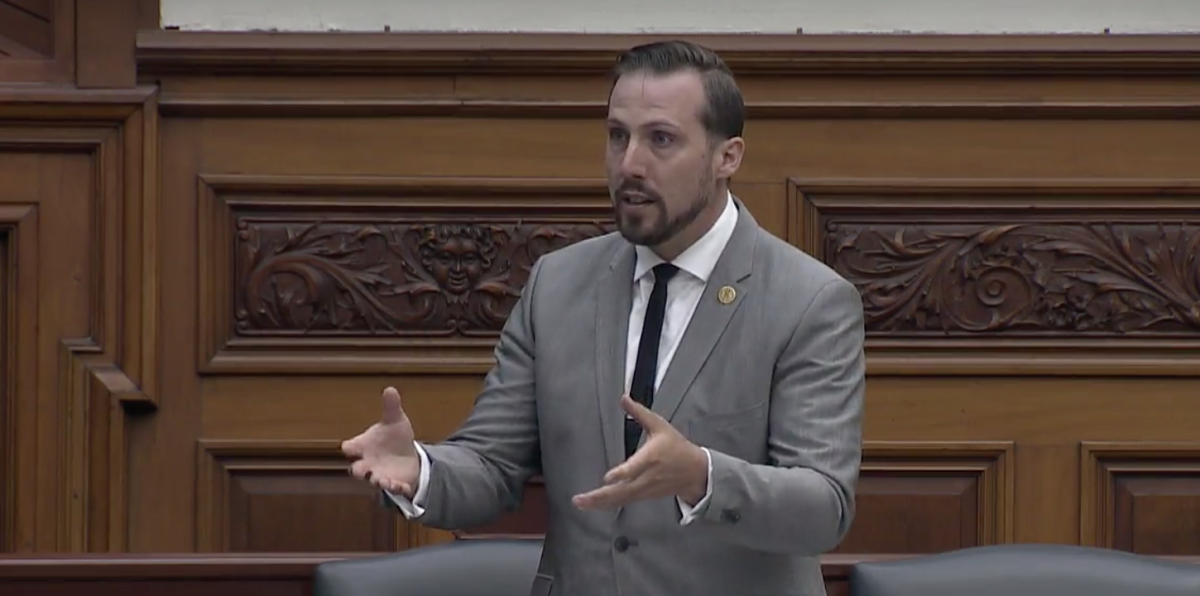Support strong Canadian climate journalism for 2025
The Ford government was "not compliant" with the law by passing its omnibus economic recovery bill Tuesday without consulting the public on major environmental changes, auditor general Bonnie Lysyk said.
The government used its majority to pass the legislation, Bill 197, on Tuesday night over the objections of opposition parties. The omnibus bill makes sweeping changes to 20 pieces of legislation, including major rewrites of environmental law.
Under Ontario’s Environmental Bill of Rights, the Progressive Conservative government is required to post measures that impact the environment on the Environmental Registry and consult the public for 30 days. The government posted notices on the registry but did not hold consultations about Bill 197, which was introduced in early July.
“We did give (the government) a heads up indicating that we had concerns on Friday,” Lysyk said in a phone interview with Canada’s National Observer.
“We indicated that the bill, before it passes third reading, should be posted on the Environmental Registry (for a full 30 day consultation).”
Green advocates have said measures in the bill amount to a rollback of environmental protections.
It includes a rewrite of environmental assessment rules — the government will now decide which projects get environmental assessments, rather than reviewing most public sector projects by default. It also streamlines assessments for projects that do need them, and removes a mechanism that allows the public to ask the environment minister to require a full review of a project.
The government has said it’s working on more regulations to decide which projects should get assessments, and to define what streamlined assessments would look like.
The bill also expands the government’s power to override the normal land planning process and potential opposition to projects through Ministerial Zoning Orders (MZOs).
Premier Doug Ford has previously said the proposed rewrite would be used to speed up infrastructure projects that would help Ontario recover from the financial hit it has taken during COVID-19.
“We aren’t going to dodge (environmental assessments) or anything,” Ford told reporters when the legislation was first introduced.
“We’re going to make sure we strengthen them, but we’re going to do them quicker and smarter.”
The government previously told National Observer it included a measure in the bill to exempt it from public consultation requirements under the Environmental Bill of Rights.
Lysyk said only the portion of the bill that deals with environmental assessments included that exception, not the one about MZOs. And either way, the government still needs to consult the public, she said, adding that it would be “precedent-setting” to allow the government to retroactively give itself an exception to the rules.
“It could undermine public confidence,” she said.
NDP environment critic Ian Arthur said the legislative process doesn’t work the way government was attempting to use it.
“You can’t embed a change that affects legislation being tabled in the legislation itself,” he said.
Arthur said he hopes the bill will be challenged in court.
“(The Ford government is) on a mission and it’s to run roughshod over environmental protections, and they’ll do that at any cost,” Arthur said in a phone interview.
“I certainly hope that they’re not allowed to do this without some sort of pushback.”
Ontario Green Party Leader Mike Schreiner said the legislation shows a "total lack of respect" for environmental oversight.
"Bill 197 was a rush job that subverted the democratic process and bypassed public input," he said in a statement. "I hope the AG will hold them accountable."
Last October, an Ontario court found that Ford’s government broke the law when it axed the province’s cap-and-trade program without holding consultations in 2018. (The court didn’t compel the government to restore the program.)
Spokespeople for Ontario Environment Minister Jeff Yurek, who is responsible for environmental assessments and Municipal Affairs Minister Steve Clark, who is responsible for MZOs, did not immediately reply to a request for comment.

NDP MPP wrote to auditor general earlier Tuesday to ask for investigation
In a letter to Lysyk earlier Tuesday, Arthur asked that she and Jerry Demarco, assistant auditor general and commissioner of the environment, review the government’s push to pass the environmental changes in the economic recovery bill. Not only did the government not hold public consultations, he said, it was also using its majority to skip the committee stage and fast-track the bill.
Lysyk said late Tuesday that she had not yet received Arthur’s letter, but said her office is already done assessing the issue.
“We already concluded on that,” she said. “We will issue a report on compliance or noncompliance with the Environmental Bill of Rights this fall. And we’ll address it in that.”
During question period at Queen’s Park Tuesday, Arthur asked the government to withdraw the “potentially illegal” changes.
Ontario Environment Minister Jeff Yurek fired back in response, saying the bill would modernize the province’s 50-year-old environmental assessment system and focus government efforts on higher-risk projects.
Though Yurek didn’t directly address the Environmental Bill of Rights, he pointed to provisions in the bill that would preserve treaty rights for First Nations and allow municipalities to veto landfill projects.
“I don't know why the member is against those changes to environmental assessments,” Yurek said.
“I have yet to hear the member opposite or that opposition party come up with a plan for the environment for the province of Ontario. All they say is, ‘no, no, no.’”
Green and Liberal MPPs also flagged concerns about the bill.
Speaking by phone Tuesday night, Arthur said it’s “in character” for the government to pass the bill despite concerns about the Environmental Bill of Rights.
“They view any sort of environmental regulation as red tape,” he said.
“I think that this government is so sure of themselves and their view of what is right that there is very little consideration for what anyone brings to the table, be it the auditor general or the opposition.”
This story was updated to include comments from the Ontario auditor general and reaction to her findings. It was updated again at 8:52 p.m. to include a statement from Ontario Green Party Leader Mike Schreiner. It was further updated at 1:56 p.m. on July 21, 2020 to clarify that the auditor general said the government was "not compliant" with the law.






Comments
I see the ghost of Herr Harris 2.1 rising like toxic mist .
In heartbreak, I feels the words " ram" ;
"$$$$$$$;
" the cost of everything and the value of nothing" ;
"pennywise, pound foolish";
"predatory obstruction" for any legislation that protects the living world from rip and ship capitalism.
WAKE UP ONTARIO
We've been petitioning, writing letters, some people have been demonstrating -- don't forget we've been under lockdown since mid-March, staying home except for a designated shopper getting groceries once a week.
Toronto's never been under any illusions about who and what Ford is, and therefore what his administration would be/is about. But then we knew what was lies and what wasn't.
Unfortunately, media didn't present any opinions at all about his tall tales. The record is there, it speaks for itself. But ppl outside Toronto really don't care what happens at Toronto City Council.
And of course, the current mayor is a Tory!!!
So now, our precious simirking government, dancing to the tune of corporatists, is going to spend taxpayer money defending certain illegally passed provisions of this sloppy omnibus bill. At the same time, Opponents of this bill will have to raise donations to take the government to court for their illegal actions that should never have been taken in the first place. Cutting red tape to swell the pockets of the legal fraternity (?) Alice in Wonderland anyone?
Since they're doing everything in the name of the PC Party, maybe costs could be awarded against the party ... it's a nice fantasy to contemplate for a second.
But in the end, what difference does court make? Do you see the feds and the provinces leaping to, wrt the SCC rulings that a lot of ppl didn't hear about until the Wet'suweten stand-off. Even then, most media didn't mention it. Wonder why that'd be.
But yeah. That's the way justice works in Canada. There's no access to process without money. Yeah, there are court filing fees waived: but not many ppl can take on a big legal firm.